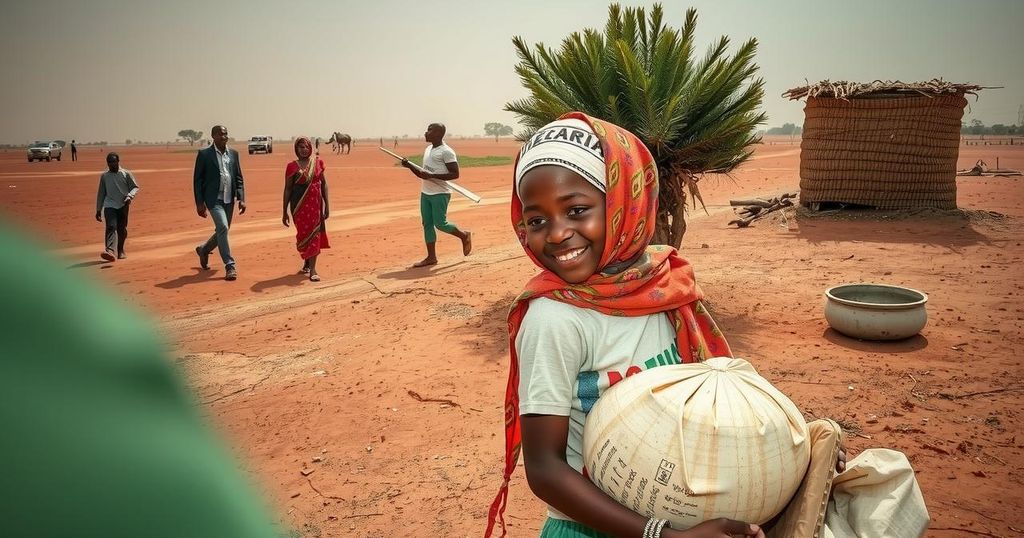Sudan faces a deepening famine crisis affecting five regions, with 24.6 million people requiring urgent food assistance due to the civil war. The ongoing conflict, marked by a struggle for power between the army and RSF, has disrupted agricultural activities and caused immense human suffering. The UN’s Famine Review Committee warns of potential catastrophe without an end to hostilities.
Sudan is increasingly descending into a severe famine crisis, as reported by independent food security experts. The ongoing civil war has exacerbated a humanitarian disaster, with famine now affecting five regions and approximately 24.6 million people—nearly half of the nation’s population—urgently requiring food assistance. This crisis has its roots in a 20-month conflict stemming from a power struggle between the army and the paramilitary Rapid Support Forces (RSF), which began following a coup in 2021.
As efforts to mediate the conflict have yielded little success, the humanitarian situation has dramatically worsened. The Famine Review Committee (FRC), which operates under the Integrated Food Phase Classification (IPC) framework, has warned of an impending catastrophe unless the conflict ceases. The Sudanese military government has recently halted collaboration with the IPC, denouncing its assessments as unreliable and damaging to national dignity.
Initially, famine conditions were identified in August at the Zamzam camp in Darfur, affecting about 500,000 internally displaced persons. The FRC’s latest findings indicate that famine has also spread to the Abu Shouk and al-Salam camps near the beleaguered city of el-Fasher in Darfur, as well as two regions in South Kordofan. The FRC articulated the gravity of the situation, stating that “Famine is the most extreme manifestation of human suffering, representing a catastrophic collapse of the systems and resources essential for survival.”
The situation is critically compounded by agricultural disruption resulting from ongoing hostilities, with predictions that famine could extend to five more areas in Darfur by May, with further risk to 17 additional regions. Regions such as Darfur and South Kordofan have experienced significant violence, leading to widespread civilian casualties and displacements. As highlighted by the U.S. special envoy for Sudan, estimates suggest up to 150,000 fatalities due to the conflict across the country. This escalating famine crisis poses an urgent call for international intervention and humanitarian assistance.
The ongoing civil war in Sudan, ignited by a power struggle between the army and the Rapid Support Forces (RSF), has led to one of the worst humanitarian crises globally. Since the coup in 2021, Sudan’s stability has deteriorated significantly, with approximately half of the population now facing severe food insecurity. The United Nations and various humanitarian agencies, through the IPC initiative, aim to monitor and respond to famine conditions, providing critical insights into the worsening situation in regions heavily impacted by conflict and violence.
In summary, Sudan is grappling with a burgeoning famine crisis that threatens millions of lives as the civil war continues unabated. The Famine Review Committee has signaled a dire outlook, warning that the humanitarian disaster could expand further without immediate intervention. The situation calls for urgent humanitarian aid and concerted efforts to resolve the conflict that has caused widespread suffering and devastation across the nation.
Original Source: www.bbc.com






